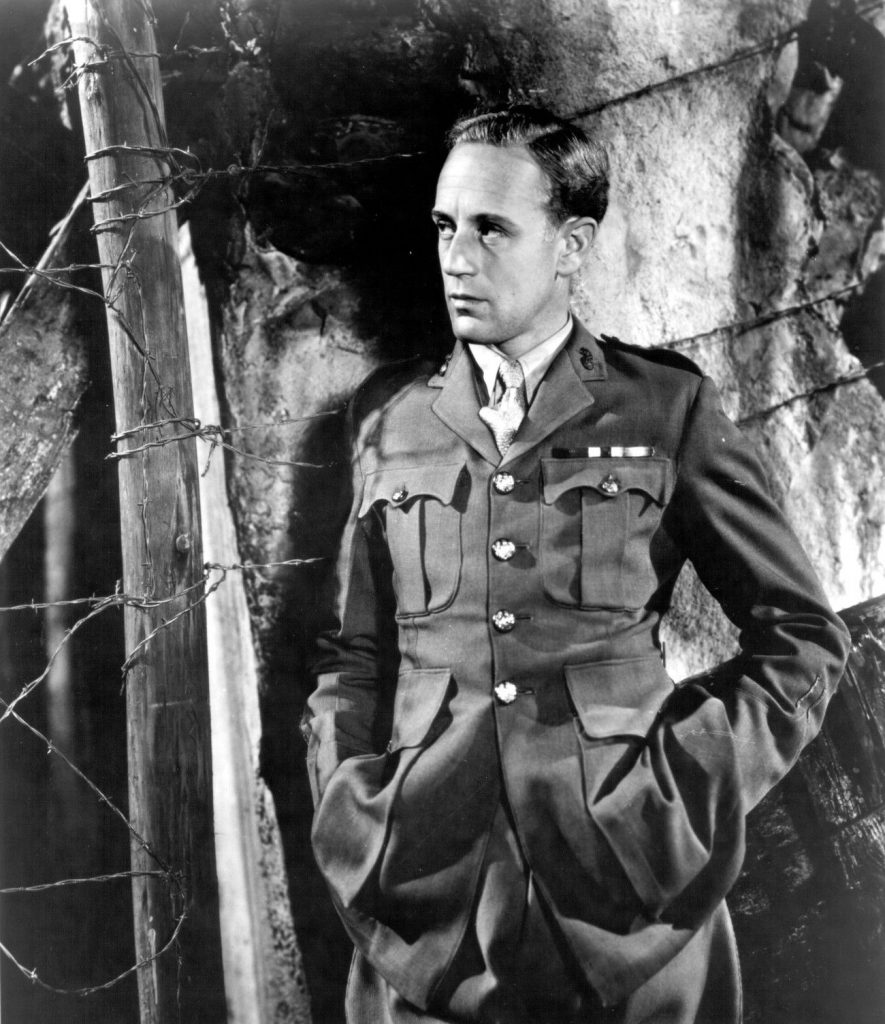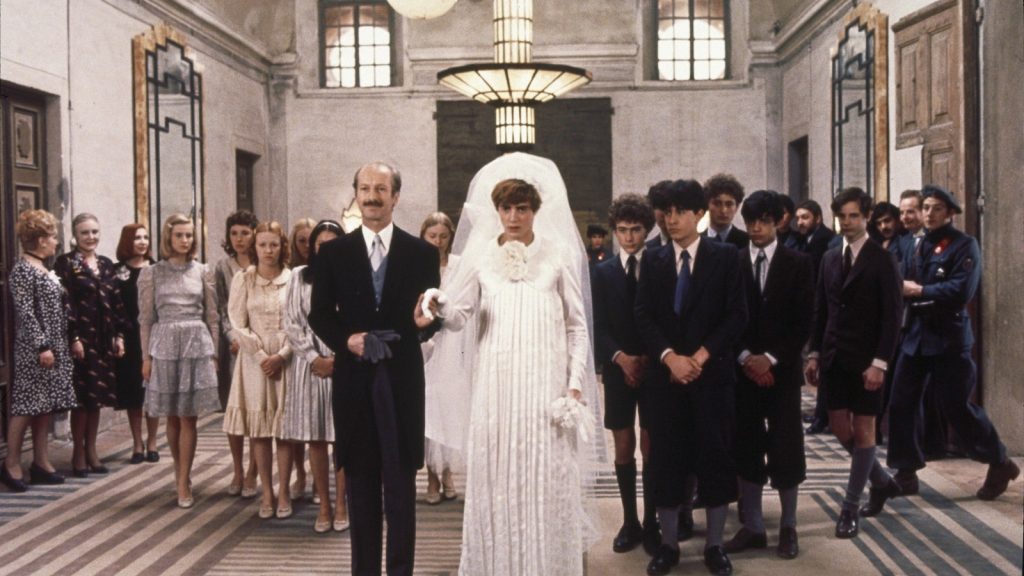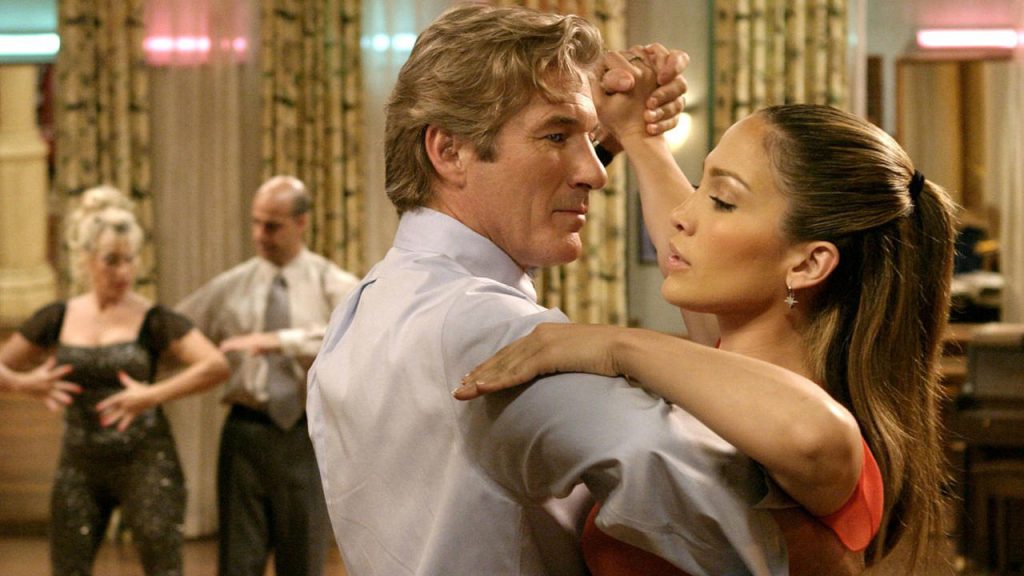On June 1, 1943, a British civilian plane was shot down between Lisbon and Bristol, crashing into the Bay of Biscay and leaving no survivors. This was tragic, but not unheard of: the United Kingdom was in the midst of war with Germany, and although civilian flights were not technically supposed to be targeted, these things happened. If it weren’t for the presence on board of famed English actor Leslie Howard, star of Gone With the Wind and The Scarlet Pimpernel, the whole thing might have been chalked up to merely a regrettable wartime incident. But ever since it resulted in his untimely death, rumors abound as to the real reason why Flight 777 was targeted, ranging from flawed German intelligence suggesting that Prime Minister Winston Churchill would be on board to, more intriguingly, Howard’s secret career in espionage.
By the time World War II began, Leslie Howard had long been an established leading man on both sides of the Atlantic. Beginning his acting career on stage, he transitioned to film during the 1920s and carved out a niche for himself as a charming but often arrogant Englishman of the upper crust, starring as Professor Henry Higgins in Pygmalion and the sensitive Philip Carey in Of Human Bondage. He earned two Academy Award nominations, first for Berkeley Square in 1934 and then for Pygmalion in 1939, but he was perhaps best known to American audiences for his performance as Ashley Wilkes in Gone With the Wind. By the time that film was released in 1939, however, he shifted his attention to the war. Although he wasn’t eligible for service, then in his late 40s and already medically discharged from the Army during World War I, he was committed to supporting the war effort. As a major movie star, the British government found a use for him as an unusually keen propagandist. But was this enough to sign his death warrant as he boarded Flight 777?
The most likely explanation for the plane crash is, admittedly, the least interesting. The German pilots who were involved in the attack claimed that, due to heavy fog, they were unable to identify the flight as a civilian aircraft. They shot it down and were later allegedly horrified to learn that it wasn’t actually a Royal Air Force plane. And indeed, there is nothing to prove that it wasn’t simply an accident. But still, rumors have persisted for nearly 80 years to the contrary suggesting that this was, in fact, a targeted operation.
Another explanation casts Leslie Howard as an unlucky victim of circumstance, mistaken by German agents for Winston Churchill’s bodyguard. Accompanied as he was by his associate Alfred T. Chenhalls, a portly man given to chain-smoking cigars, the duo may have lent credence to the idea that the Prime Minister was boarding the plane. An attempted assassination of Churchill was a tantalizing prospect for the media at the time, and it was the story that contemporary press ran with. Just three days after the plane crash, the New York Times reported the theory, writing that, “it was believed in London that the Nazi raider[s] had attacked on the outside chance that Prime Minister Winston Churchill might be among the passengers.”
Still, although Churchill would have been an extremely high value kill, he was far from the only passenger of interest, and attention turned to Howard as a potential target. German agents were well aware of Howard’s significant contributions to the war effort as a propagandist. His work as the star and director of “Pimpernel” Smith, an updated version of The Scarlet Pimpernel that takes the classic story of an adventurer in Revolutionary France and turns him into a seemingly mild-mannered academic behind enemy lines in Nazi Europe, was a huge success during the war. The plotline of the film is believed to have inspired Swedish diplomat Raoul Wallenberg to engineer his own rescue operation, saving thousands of Hungarian Jews – although, tragically, Howard did not live long enough to see the full impact of his work.

Reich Minister of Propaganda Joseph Goebbels was reportedly enraged by Howard’s elegant work in shoring up Allied support, and it’s easy to imagine him becoming enough of a thorn in the side of German propagandists to paint a target on his back. And in the eyes of Goebbels, what was even worse than Howard’s effectiveness as a wartime civilian leader was his “impure” status: This figure who taunted him from across the English Channel was part Jewish, with a Hungarian-Jewish father and a mother who, though Christian, was patrilineally descended from Jewish merchants. If German intelligence was not behind the assault on Flight 777, they certainly crowed loud enough when the plane went down – Goebbels in particular was elated, publishing the headline in his propaganda newspaper Der Angriff, “Pimpernel Howard has made his last trip.”
Howard’s role in the English war machine may have been enough to get his name on a Nazi hit list. But some believe that German intelligence saw his involvement in the war effort as more substantial and complex than was publicly known at the time (or, indeed, even now). Howard was on what was called an “entertainer goodwill” tour, traveling through Portugal and Spain, then neutral countries, promoting his films and giving lectures on cinema. This was the public-facing aspect of his tour, anyway. Several sources have alleged that he may have been on a mission throughout this trip, one that the Germans were aware of. Writer José Rey Ximena argues that Howard was sent by Churchill to attempt to convince Spanish dictator Francesco Franco not to join the Axis powers, and that while he was traveling throughout Portugal and Spain, he was not merely lecturing on film, but making useful connections with resistance cells along the way.
Still, we may never know the truth. Although it probably wouldn’t make for a satisfying conclusion to a 1940s anti-Nazi thriller for the truth of the plane crash to go uncovered, it does somehow feel fitting for the mysterious actor who was so much more than his upper-crust persona would suggest. Flight 777 might have gone down for any number of reasons. Maybe the German Luftwaffe simply made a bad call, confusing military and civilian aviation with deadly consequences. Perhaps German intelligence got their wires crossed, thinking that somehow the Prime Minister would risk flying on a commercial plane in broad daylight. Or maybe the temptation to take out one of Britain’s most famously patriotic actors and public figures was too much to resist. All of these are perhaps more likely than the idea of Leslie Howard, secret agent.
But the theory has lingered on, longer even than the public awareness of Howard’s celebrity, because the idea of an actor at the peak of his career embarking on a dangerous mission, putting his life on the line to use the power of his fame and connections in a surreptitious fight against Nazis, is too tantalizing to ignore. After all, Hollywood knows a good story when they see it.



